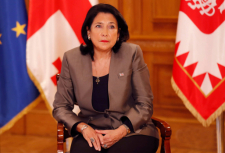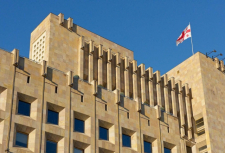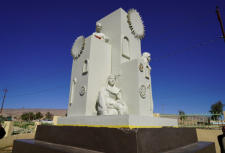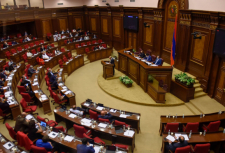Letters of abducted and missing Yazidis reveal their fate
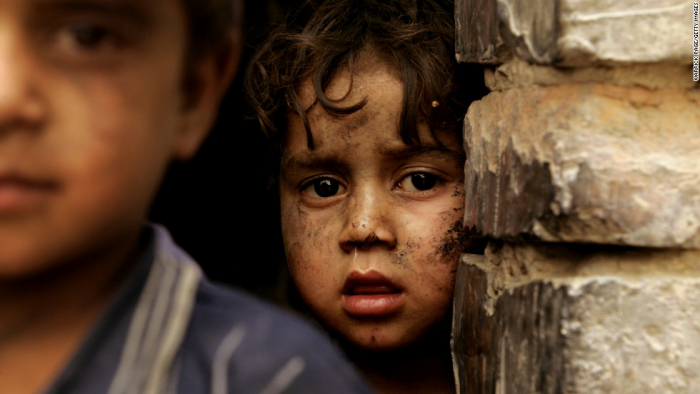
The New York Times reports that a number of missing Yazidis, numbering about three thousand people, are in contact with their relatives, who are negotiating with the kidnappers about their return, but unfortunately, mostly the relatives and relatives of the victims of the abduction do not find "financial support from governments and private sponsors" in order to ensure their return.
ISIS launched a campaign of genocide against the Yezidi minority in the Sinjar region of northern Iraq, capturing large parts of Iraq and Syria in 2014.
In Sinjar, ISIS militants killed more than three thousand people, captured about six thousand and enslaved women and girls by abducting and holding them in sexual slavery before the area was liberated in 2017.
The Yazidis are asking the Iraqi government to speed up the search for the missing.
The New York Times report says that most of the missing are probably dead, and hundreds of them are still alive and are being held in Syria or Iraq.
It is believed that many of the survivors live with the families of dead ISIS fighters either in bunkers or in concentration camps. The rest are believed to be held by various militant groups in Syria.
Among them is the son of a Yazidi from Sinjar, Abbas Hussein, who has been negotiating for more than a year with a former ISIS fighter living in northern Syria for the release of his young son and five other relatives.
He says that his son is forced to work in the construction sector for one dollar a day, and that the kidnappers are asking for $9,000 for six detainees, but he does not have this amount.
According to Hussein, he sent the kidnapper two payments in the amount of $ 600 and $ 1200, but this was not enough, even for the son to continue to keep in touch with his father.
In the last messages that the boy sent to his father last summer, it is said that the kidnapper will not allow him to send messages to his father anymore because his family did not pay the required amount: "Dad, if you don't have money, it's okay. Just let me know... I will work and save money and give it to him so that he will let me talk to you."
The report indicates that the Iraqi government has failed to free the Yezidis, while Abdullah Shreim, the Yezidi savior who returned almost 400 abducted Yezidis from 2014 to 2019, is making great efforts. Although the Yazidis are citizens of Iraq, the Iraqi government in Baghdad has never participated in their rescue, claiming that it has neither the money nor the capabilities. Moreover, no measures have been taken to try to find enslaved Yezidis inside the camps in Iraq.
The report indicates that the American organization provided the activist, the savior of the Yezidis, Abdullah Shreim, with detailed maps of Syrian cities to help him find the surviving Yezidis. During his five years running the smuggling network, Shreim used the financial support of the Kurdistan Regional government, private donations from Yezidis and money borrowed by relatives of missing Yezidis to free them.
Iraqi Prime Minister Mustafa Al-Kazemi met with Yazidi survivors during his visit to Mosul in August last year and promised them to protect their rights guaranteed by the "Law on Survivors" approved by Parliament and ratified by the President of the Republic Barham Salih in March last year.
The President of the Republic of Iraq ratified the law "On Yezidi Survivors" after it was approved by Parliament, and it is aimed at compensating survivors "financially and morally, rehabilitating and caring for them, as well as providing them with a decent life."
On the International Day of Remembrance of the Slave Trade and its Abolition, the Yezidis recall their suffering during the presence of ISIS, the Iraqi government only "says" that it is making great efforts to return the abducted Yezidis and improve their conditions, as such, no action has yet been taken.
bahzani.net
Tags: #yazidisinfo #newsyazidi #aboutyazidi #humanrights #genocideyazidis
Letters of abducted and missing Yazidis reveal their fate

The New York Times reports that a number of missing Yazidis, numbering about three thousand people, are in contact with their relatives, who are negotiating with the kidnappers about their return, but unfortunately, mostly the relatives and relatives of the victims of the abduction do not find "financial support from governments and private sponsors" in order to ensure their return.
ISIS launched a campaign of genocide against the Yezidi minority in the Sinjar region of northern Iraq, capturing large parts of Iraq and Syria in 2014.
In Sinjar, ISIS militants killed more than three thousand people, captured about six thousand and enslaved women and girls by abducting and holding them in sexual slavery before the area was liberated in 2017.
The Yazidis are asking the Iraqi government to speed up the search for the missing.
The New York Times report says that most of the missing are probably dead, and hundreds of them are still alive and are being held in Syria or Iraq.
It is believed that many of the survivors live with the families of dead ISIS fighters either in bunkers or in concentration camps. The rest are believed to be held by various militant groups in Syria.
Among them is the son of a Yazidi from Sinjar, Abbas Hussein, who has been negotiating for more than a year with a former ISIS fighter living in northern Syria for the release of his young son and five other relatives.
He says that his son is forced to work in the construction sector for one dollar a day, and that the kidnappers are asking for $9,000 for six detainees, but he does not have this amount.
According to Hussein, he sent the kidnapper two payments in the amount of $ 600 and $ 1200, but this was not enough, even for the son to continue to keep in touch with his father.
In the last messages that the boy sent to his father last summer, it is said that the kidnapper will not allow him to send messages to his father anymore because his family did not pay the required amount: "Dad, if you don't have money, it's okay. Just let me know... I will work and save money and give it to him so that he will let me talk to you."
The report indicates that the Iraqi government has failed to free the Yezidis, while Abdullah Shreim, the Yezidi savior who returned almost 400 abducted Yezidis from 2014 to 2019, is making great efforts. Although the Yazidis are citizens of Iraq, the Iraqi government in Baghdad has never participated in their rescue, claiming that it has neither the money nor the capabilities. Moreover, no measures have been taken to try to find enslaved Yezidis inside the camps in Iraq.
The report indicates that the American organization provided the activist, the savior of the Yezidis, Abdullah Shreim, with detailed maps of Syrian cities to help him find the surviving Yezidis. During his five years running the smuggling network, Shreim used the financial support of the Kurdistan Regional government, private donations from Yezidis and money borrowed by relatives of missing Yezidis to free them.
Iraqi Prime Minister Mustafa Al-Kazemi met with Yazidi survivors during his visit to Mosul in August last year and promised them to protect their rights guaranteed by the "Law on Survivors" approved by Parliament and ratified by the President of the Republic Barham Salih in March last year.
The President of the Republic of Iraq ratified the law "On Yezidi Survivors" after it was approved by Parliament, and it is aimed at compensating survivors "financially and morally, rehabilitating and caring for them, as well as providing them with a decent life."
On the International Day of Remembrance of the Slave Trade and its Abolition, the Yezidis recall their suffering during the presence of ISIS, the Iraqi government only "says" that it is making great efforts to return the abducted Yezidis and improve their conditions, as such, no action has yet been taken.
bahzani.net
Tags: #yazidisinfo #newsyazidi #aboutyazidi #humanrights #genocideyazidis
